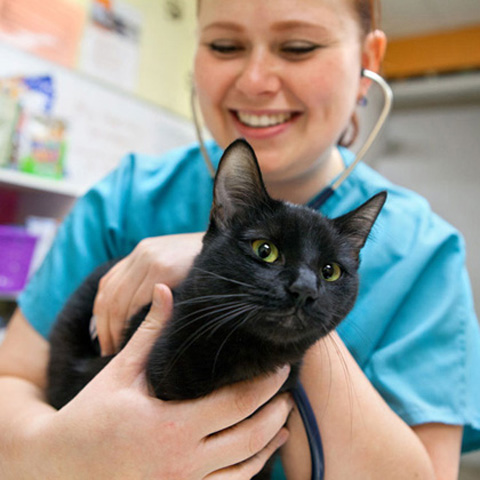Mission
We promote the health, productivity, and welfare of food- and fiber-producing animals, companion animals, and zoo and wildlife populations, to ensure the safety of foods of animal origin and to prevent animal disease with its associated risks to human health.
Research, Teaching, and Extension
The department builds on three major strengths: the population dynamics of health and disease, interaction with production animals and producers, and the laboratory diagnostic sciences. Our research focuses on broadening our understanding of existing and emerging infections and diseases, developing new laboratory-based diagnostic tests, assessing the dynamics of health and disease in animal populations, and building science-based veterinary and public-health programs. Our teaching centers on educating students, graduates, the public, and professionals in the animal industry; understanding the principles underlying diagnosis and dynamics of infection and disease in animal populations; and designing programs to promote animal health and welfare and the production of safe, high-quality foods. The professional service efforts of the department are broad. Specifically, these activities focus on providing state-of-the-art laboratory diagnostic services to veterinarians and animal owners, providing epidemiological and statistical support to the college, promoting the use and implementation of science-based herd-health protocols, and maintaining an agricultural-animal teaching practice.











